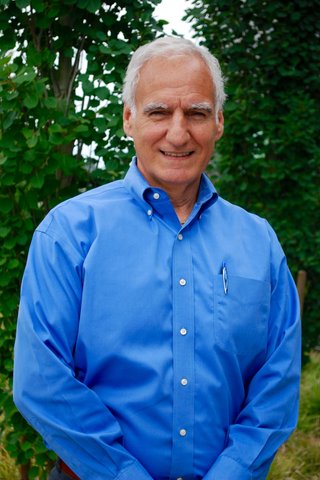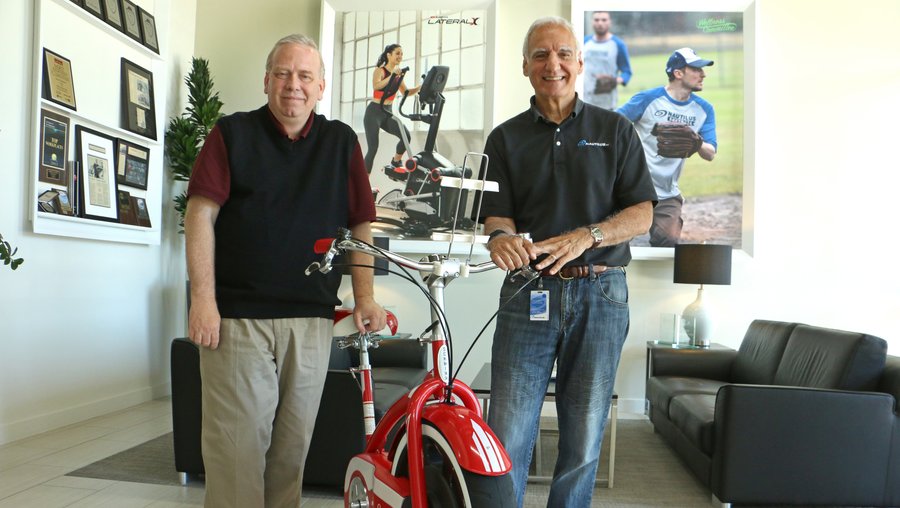The financial crisis nearly killed Nautilus Inc.
When credit markets locked up in 2008, consumer demand for the Vancouver-based company's exercise equipment — treadmills start at $950 — evaporated.
Nautilus racked up nearly $225 million in losses over a four-year period. It eliminated more than 1,200 of its 1,550 jobs and moved out of its cavernous corporate headquarters.
But a decade later, thanks to disciplined financial management, a worker-led cultural renaissance and heavy investments in research and development, the company's balance sheet is healthy and it's spinning off enough cash to consider acquisitions.
'More cash than we need'
Two years before the 2008 financial crisis, Nautilus had an enterprise value — a basic measure of a company's market value — of $484 million. By the time Bruce Cazenave became CEO in 2011, 91 percent of that enterprise value was gone, an astonishing corporate descent.
Cazenave plotted a conservative financial course and diversified the company's sales by expanding into retail. For years, Nautilus had focused on selling through infomercials and other direct channels.

Cazenave is a "great operator," said Michael Kawamoto, a retail analyst who covers Nautilus for D.A. Davidson. "When he took over, Nautilus didn't really have a retail presence."
The financial turnaround efforts included trimming expenses, such as the overhead on a 488,000-square foot headquarters that Chief Operating Officer Bill McMahon called a "Taj Mahal." Nautilus moved out of the building about seven years ago into a "right-sized" 53,000-square-foot office across the street. It's since added an adjacent 30,000-square-foot research and development facility.
Seven years into Cazenave's tenure, Nautilus's cash position has grown from $17 million to $85 million, enabling more investments in research and development, such as digital products, and possibly fueling acquisitions.
"They have great cash flow," Kawamoto said.
McMahon said Nautilus could buy a smaller competitor. It could also buy a company in an industry in which Nautilus wants to grow, such as digital. Nautilus is investing in the digital interfaces on its exercise equipment. McMahon said the company's also interested in buying intellectual property that it can bring to market.
“Our advantage will always be that we're not trying to be the sexiest," McMahon said. "We're trying to be the smartest. The smartest is we have a solid balance sheet, we maintain that solid balance sheet and we work on doing deals that are appropriate for our shareholders and our business partners."
While Nautilus has trimmed unnecessary expenses, it's boosted spending on research and development. The company spent $3.2 million on R&D during Cazenave's first year with the company. It spent $15.4 million last year.
Retail analyst Kawamoto said the investments have enabled Nautilus to get new products to market faster.
Most of Nautilus's R&D spending takes place at the 30,000-square-foot facility across the street from the company's headquarters. The building has exposed wood, high ceilings, open offices and a suite of equipment that enables Nautilus to build prototypes and stress test products. The company recently added a plasma cutter to its extensive list of industrial tools.
“We can literally make just about anything we need in-house," said Scott Eastman, test lab manager.
Culture club
Ed Flick remembers when Nautilus rapidly downsized. The company peaked at 1,550 employees in 2006, according to annual reports filed with the Securities and Exchange Commission. Five years later, it had 330 workers.
“The culture was tense,” said Flick, a 17-year employee and director of industrial design. "People were heads down in their cubes and worried about getting laid off."
Flick and some other employees took it upon themselves to bandage the company's ailing morale. They started a "culture club" that includes a person from every department.
"It has absolutely exploded," he said. "It's something you can’t pay for."
The worker-led effort now signs birthday cards for all employees and organizes festivities, such as casual get-togethers, kickball and a popular Halloween party for children.
Management has gotten behind the morale-boosting efforts. The company pays for employees to enter events such as the Hood 2 Coast relay race and the Seattle to Portland bike ride. Management even gets behind the grill at an annual employee cookout.
McMahon said the culture starts with Cazenave.
"Bruce is the type of CEO who knows every employee's first name. He probably knows your kids' names. He is that type of person who connects with employees at a deeper level. It shows in our culture. He’s just a genuinely good human. And, by the way, he’s an exceptionally smart businessman on top of that."
CLOSER LOOK
The company: Nautilus Inc.
The business: A publicly-traded maker of fitness equipment
Headquarters: Vancouver, Wash.
Top executive: CEO Bruce Cazenave
Employees: Nearly 500
Revenue: $406 million (2017)
Online: www.nautilusinc.com
